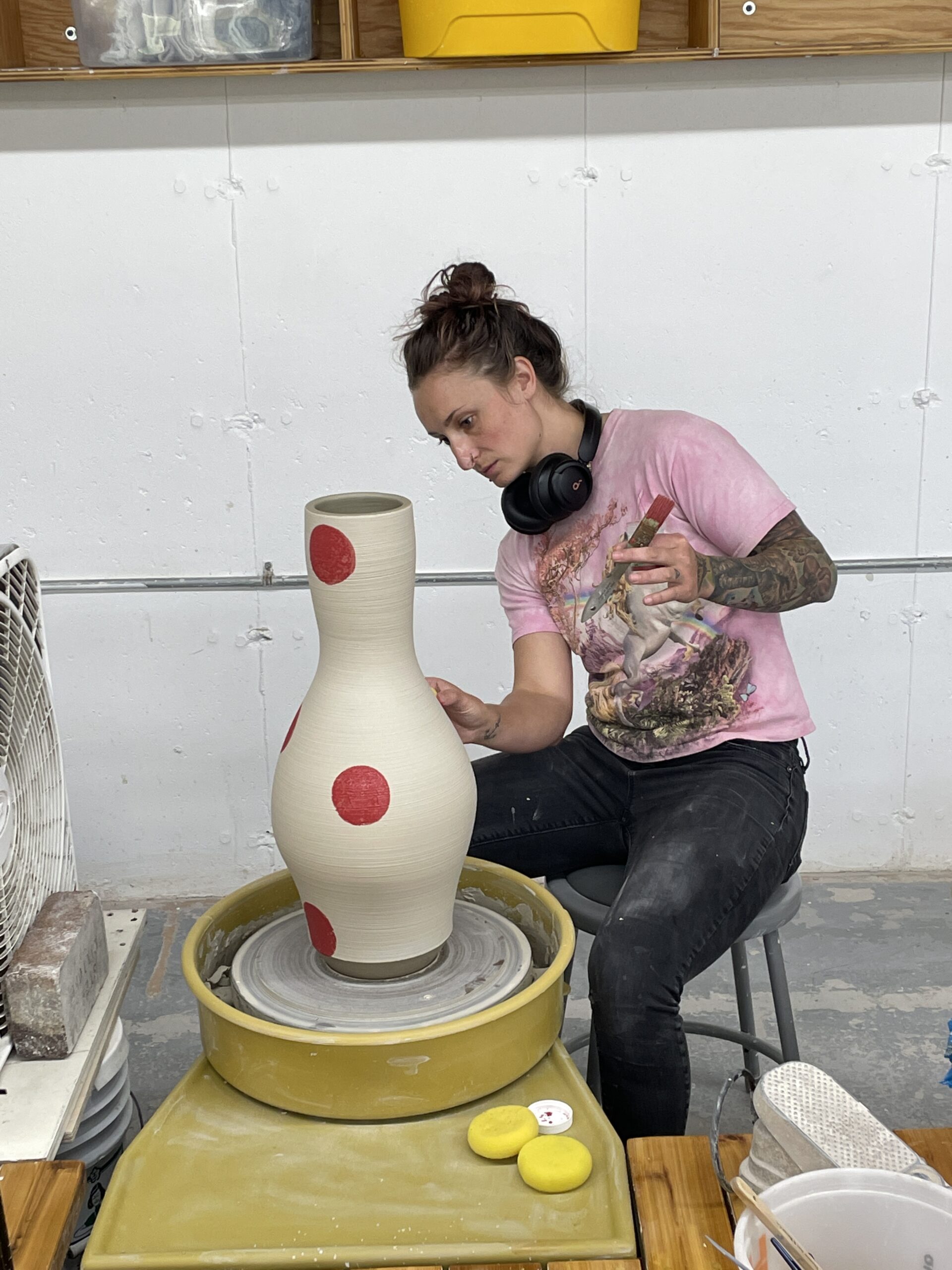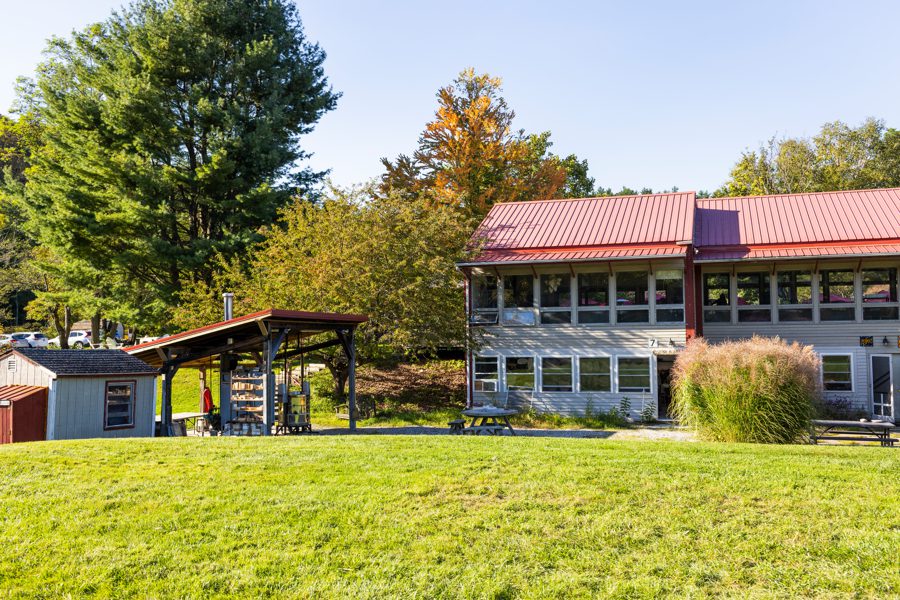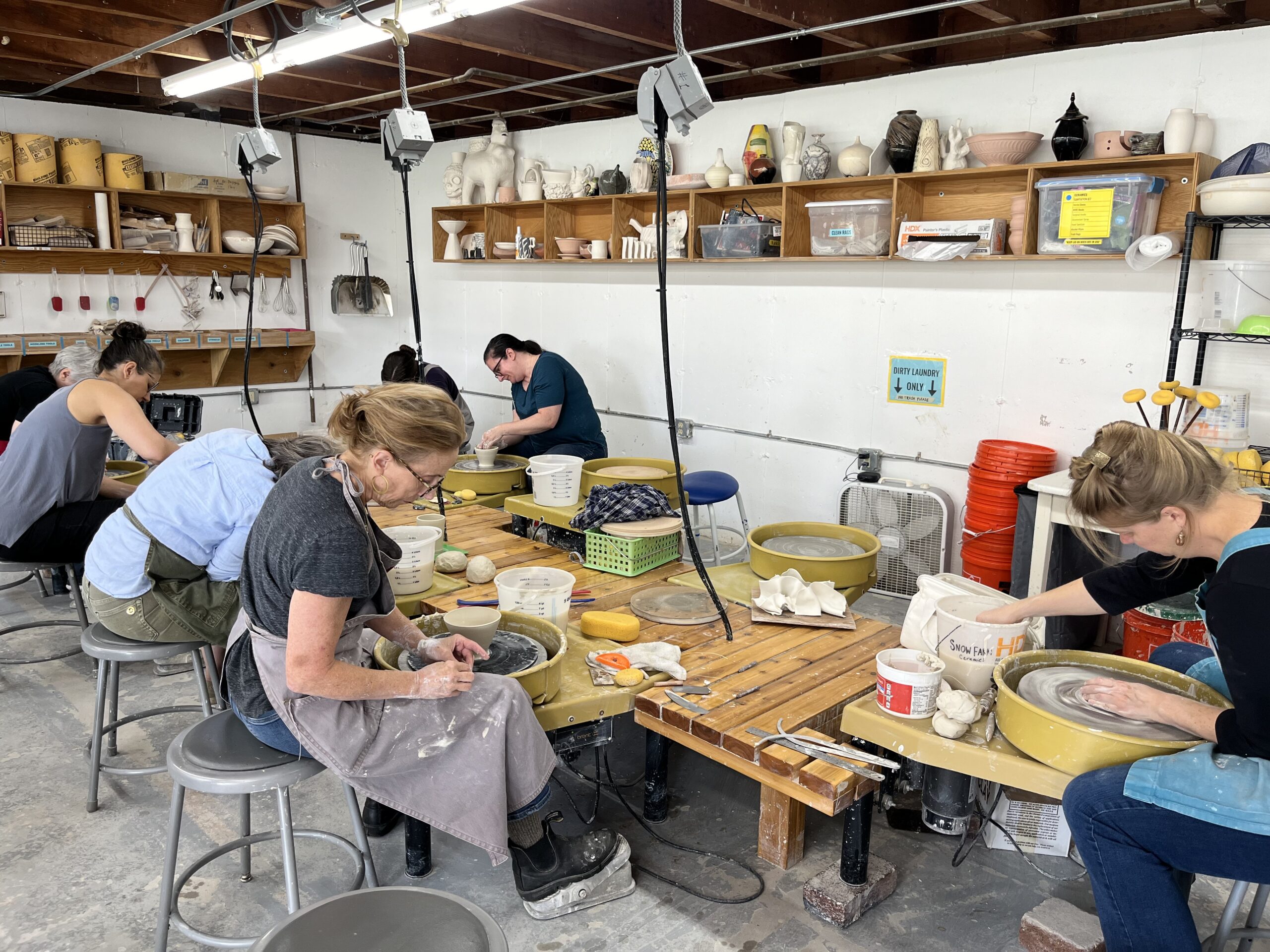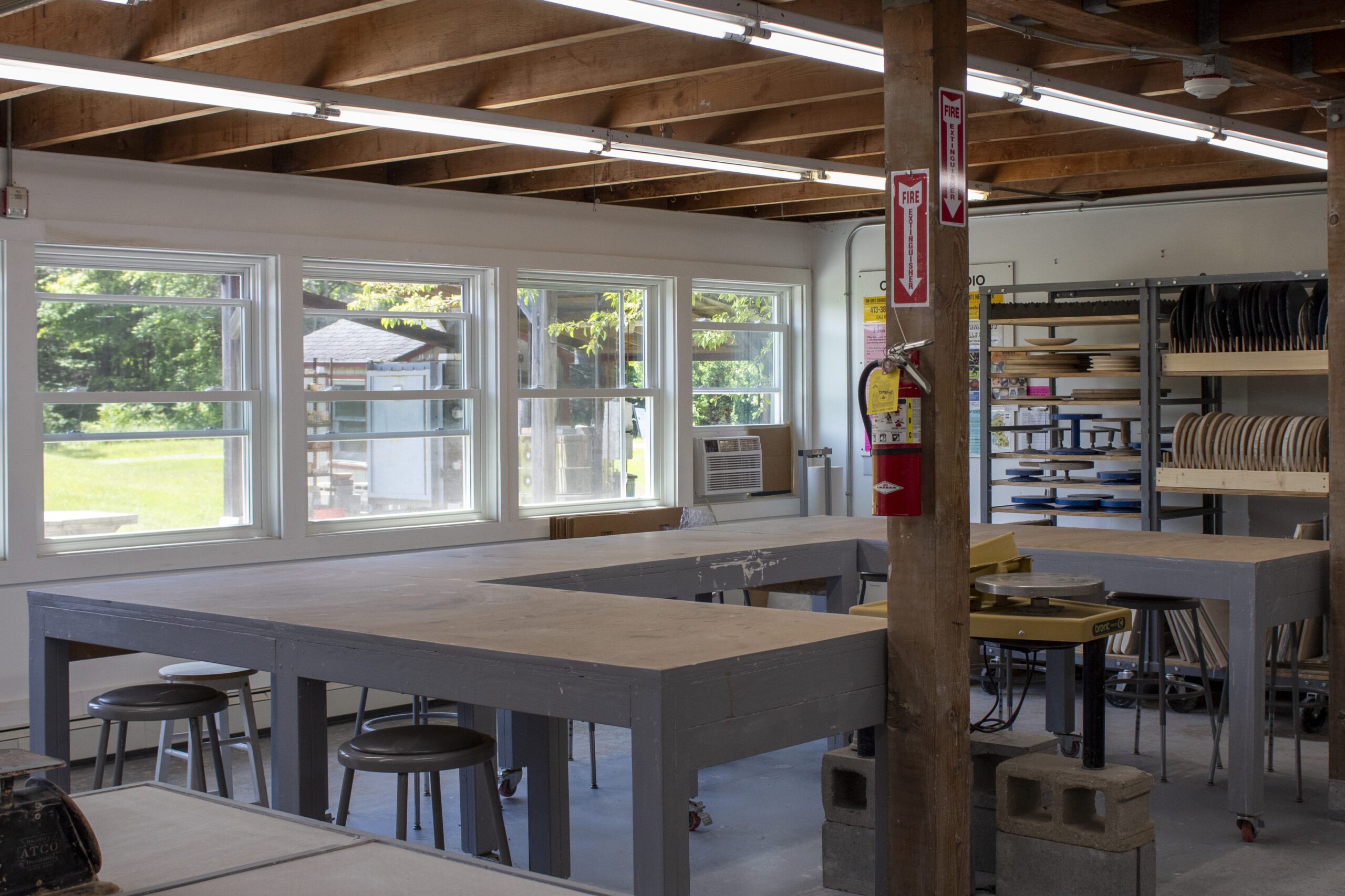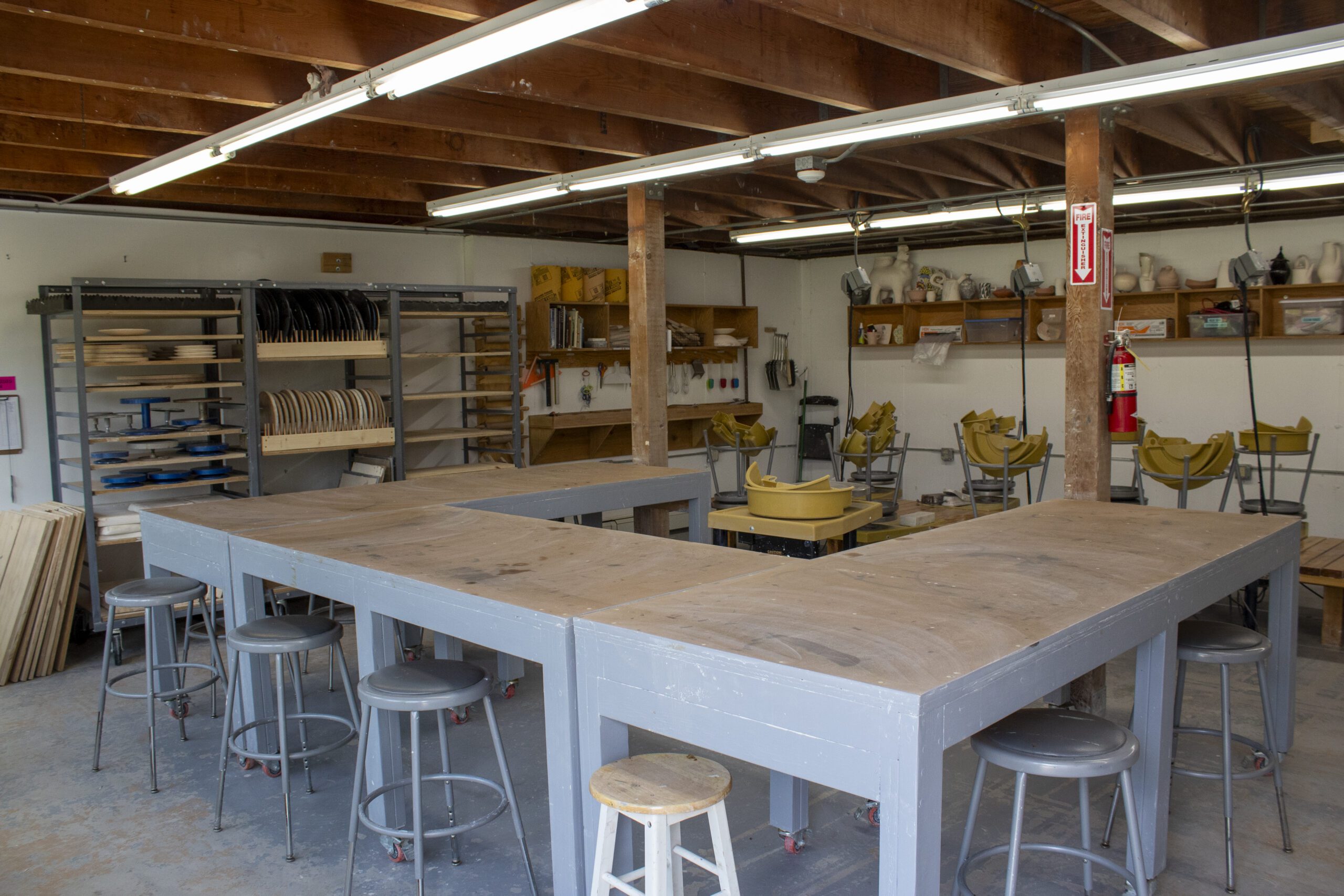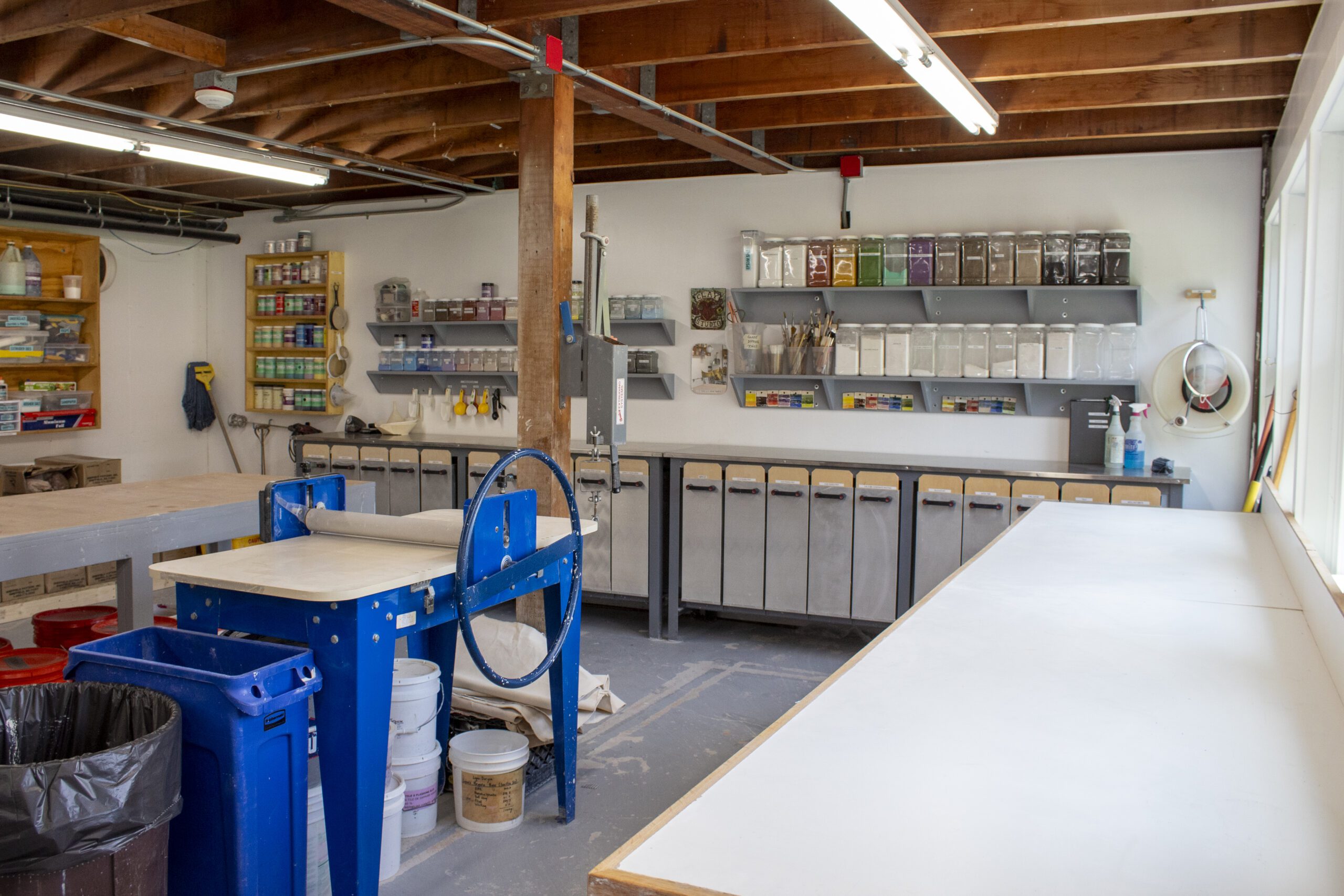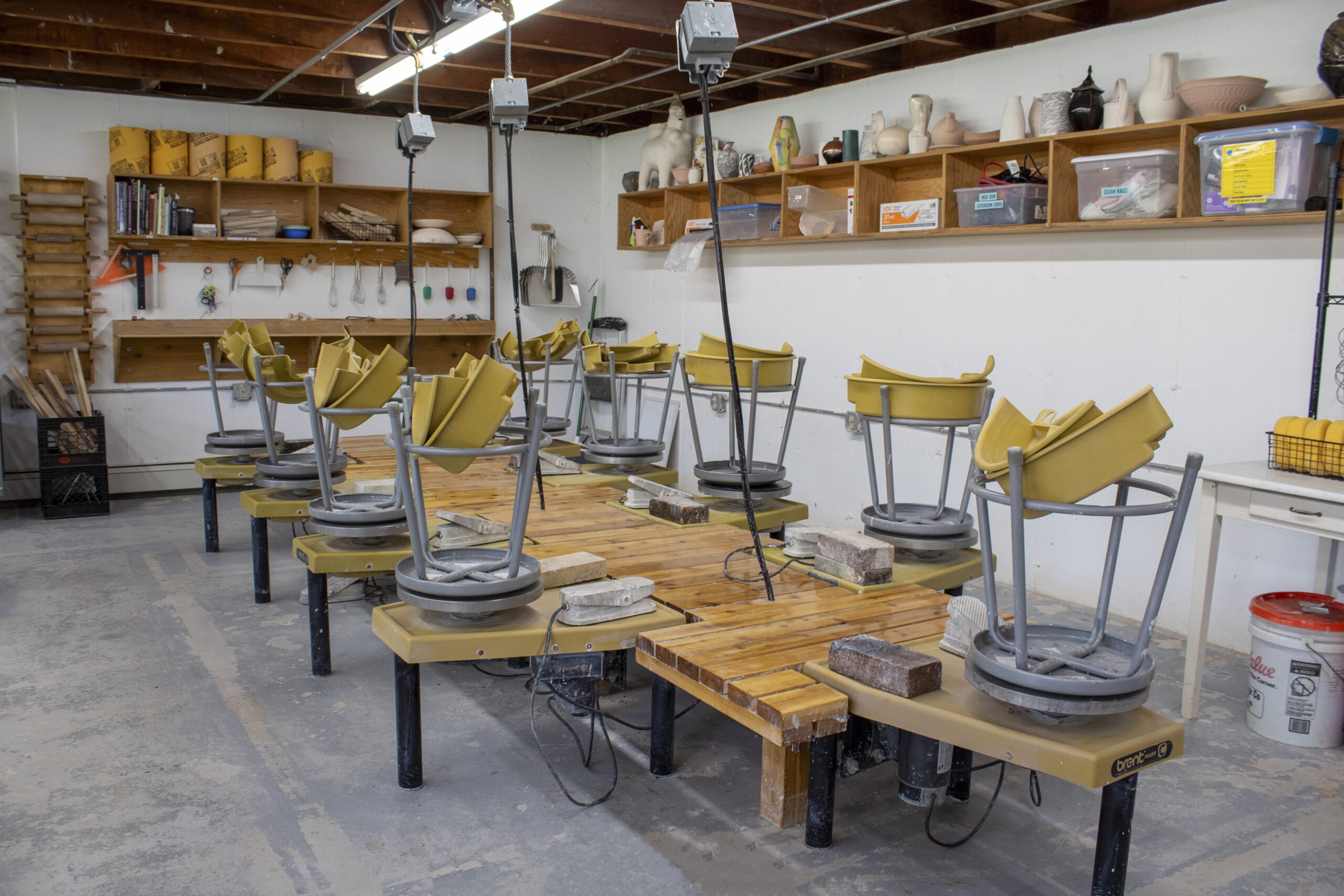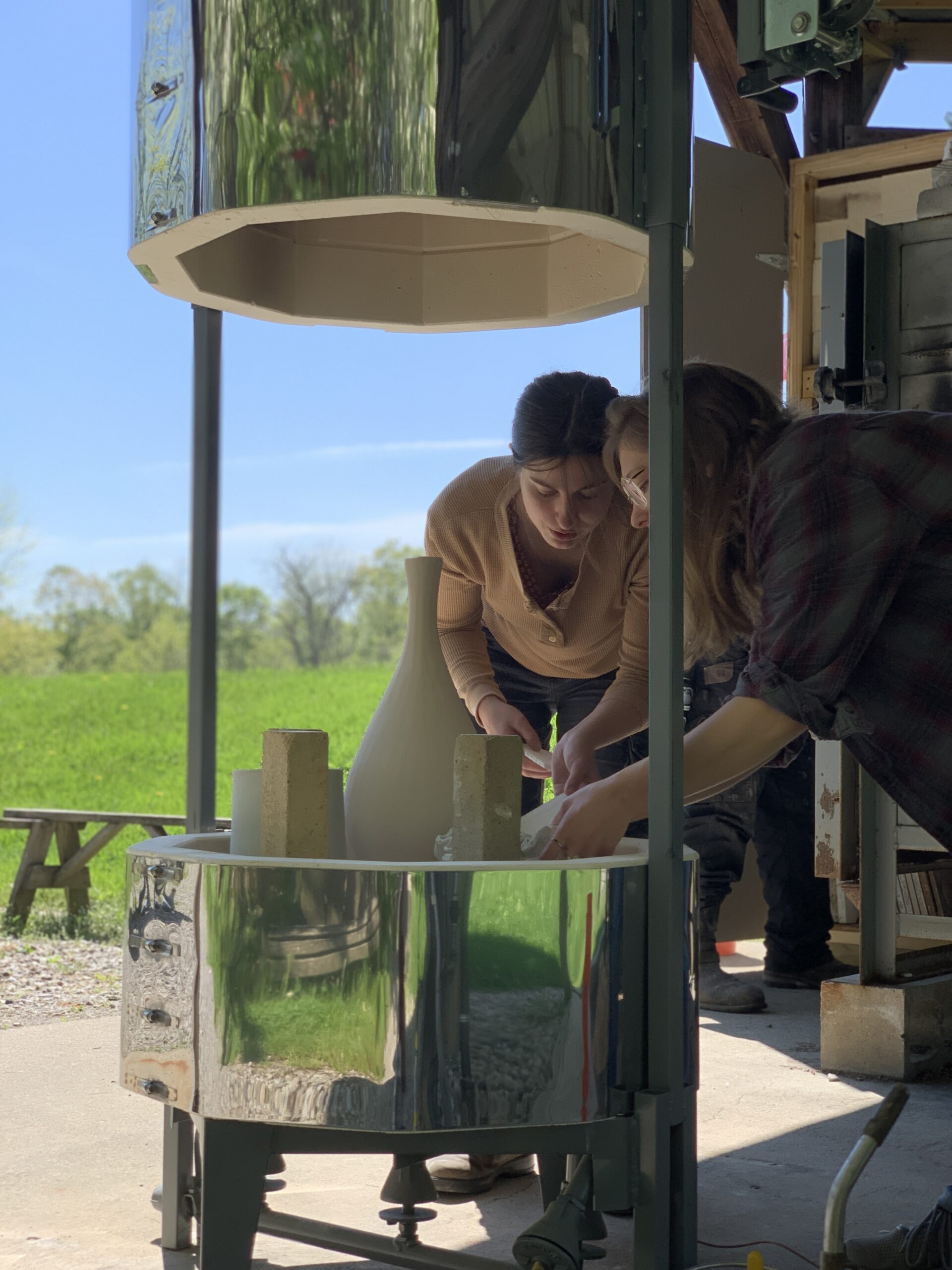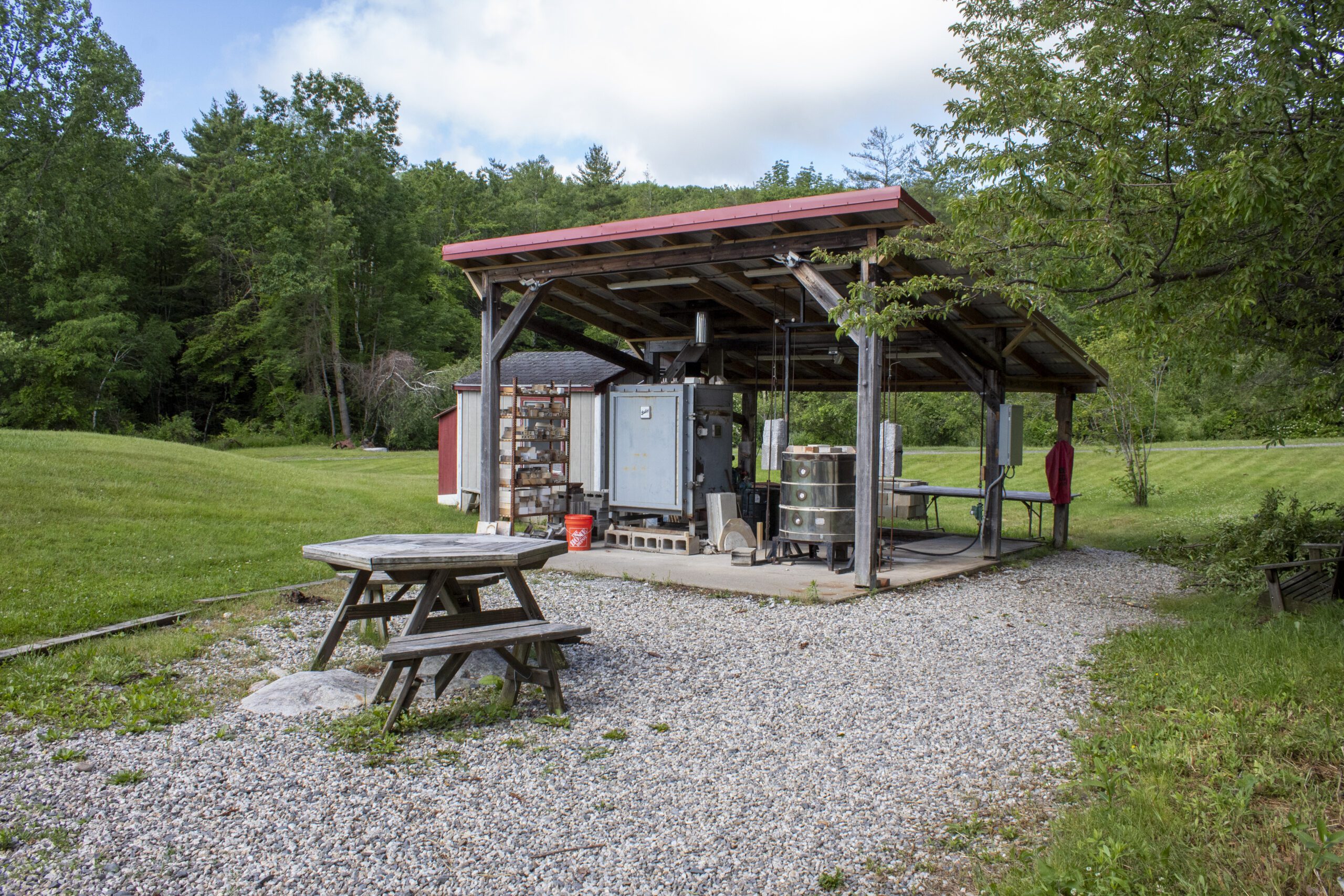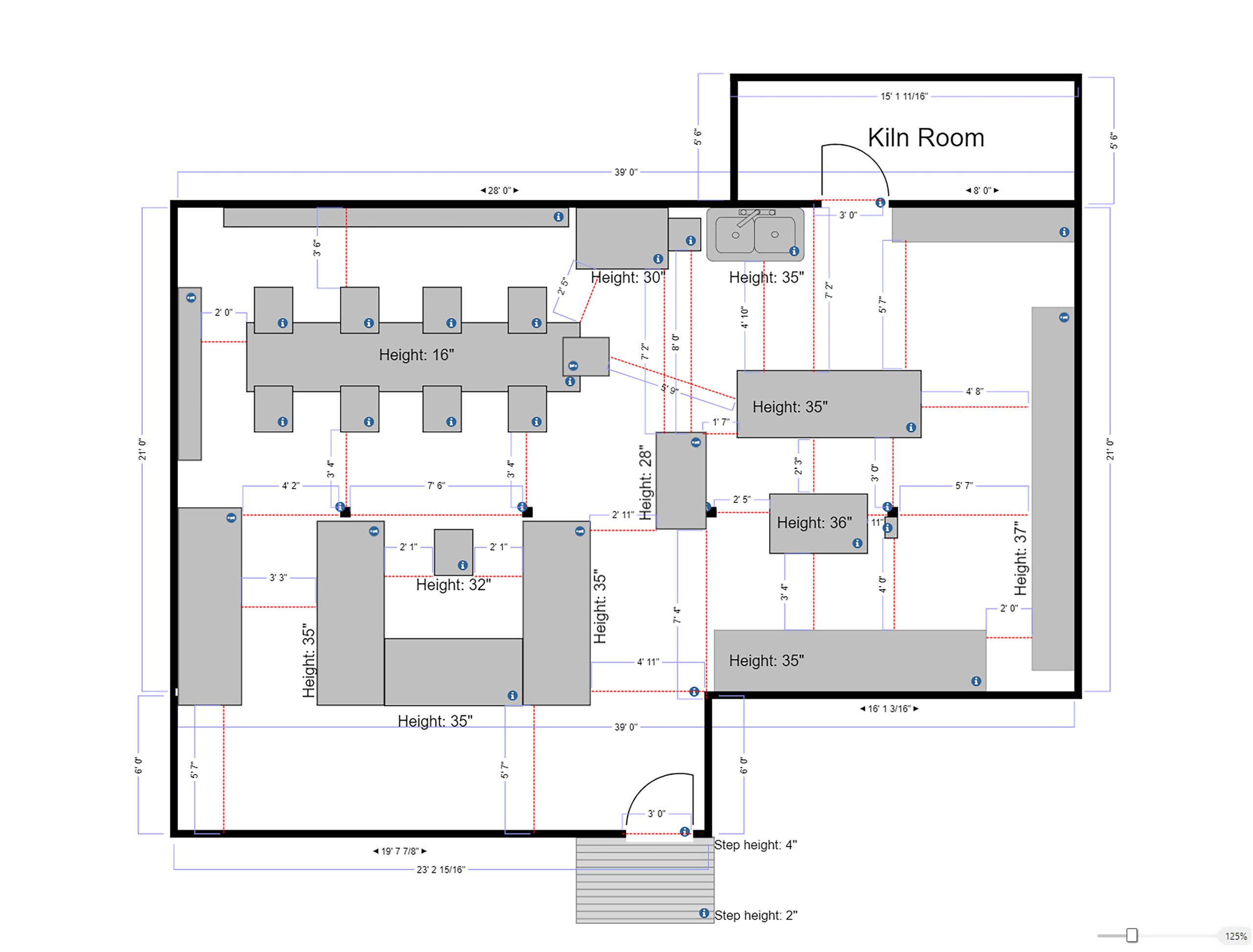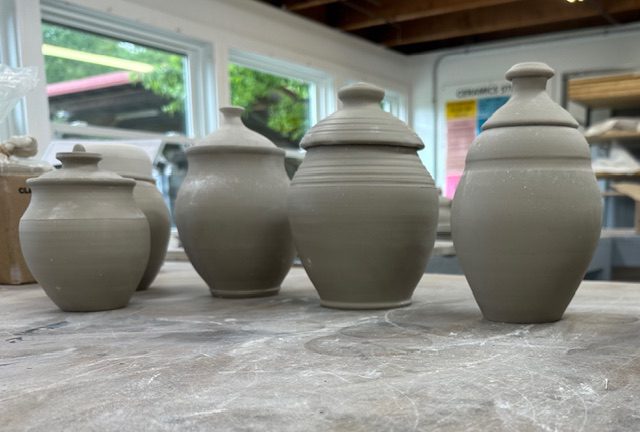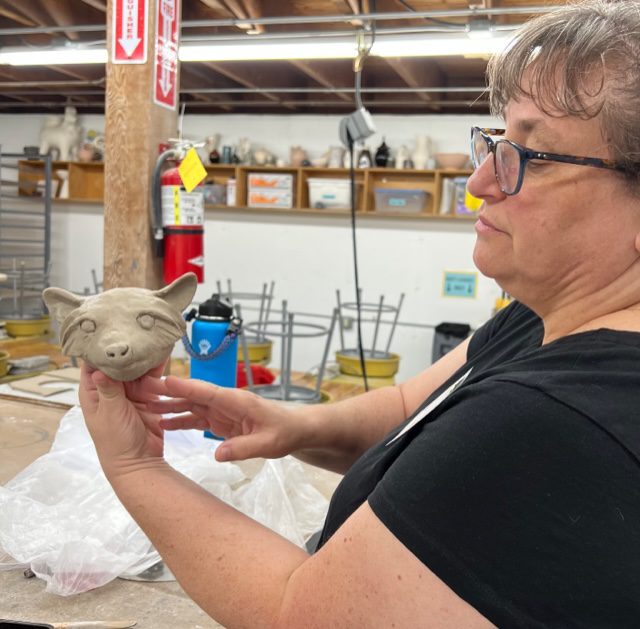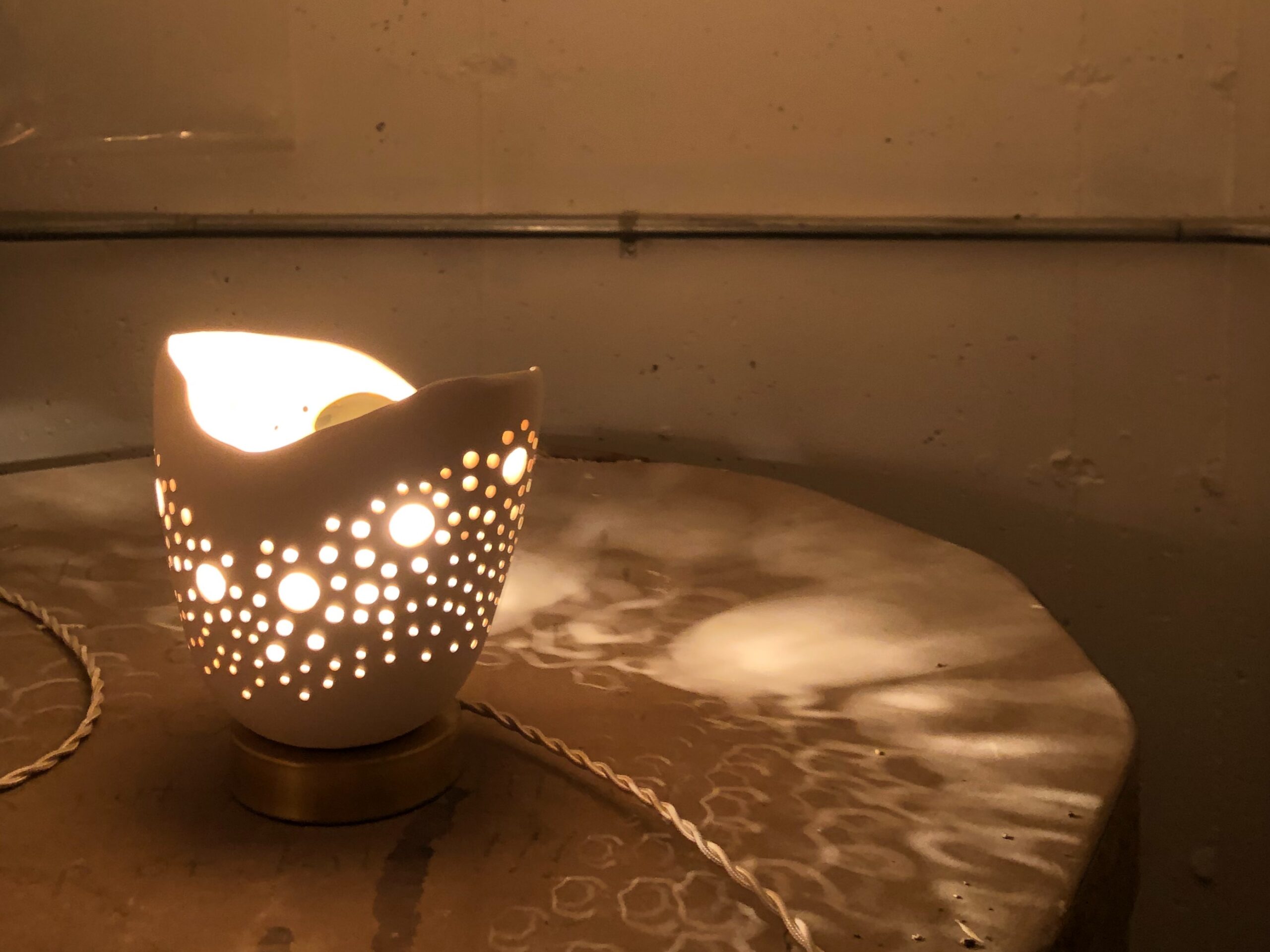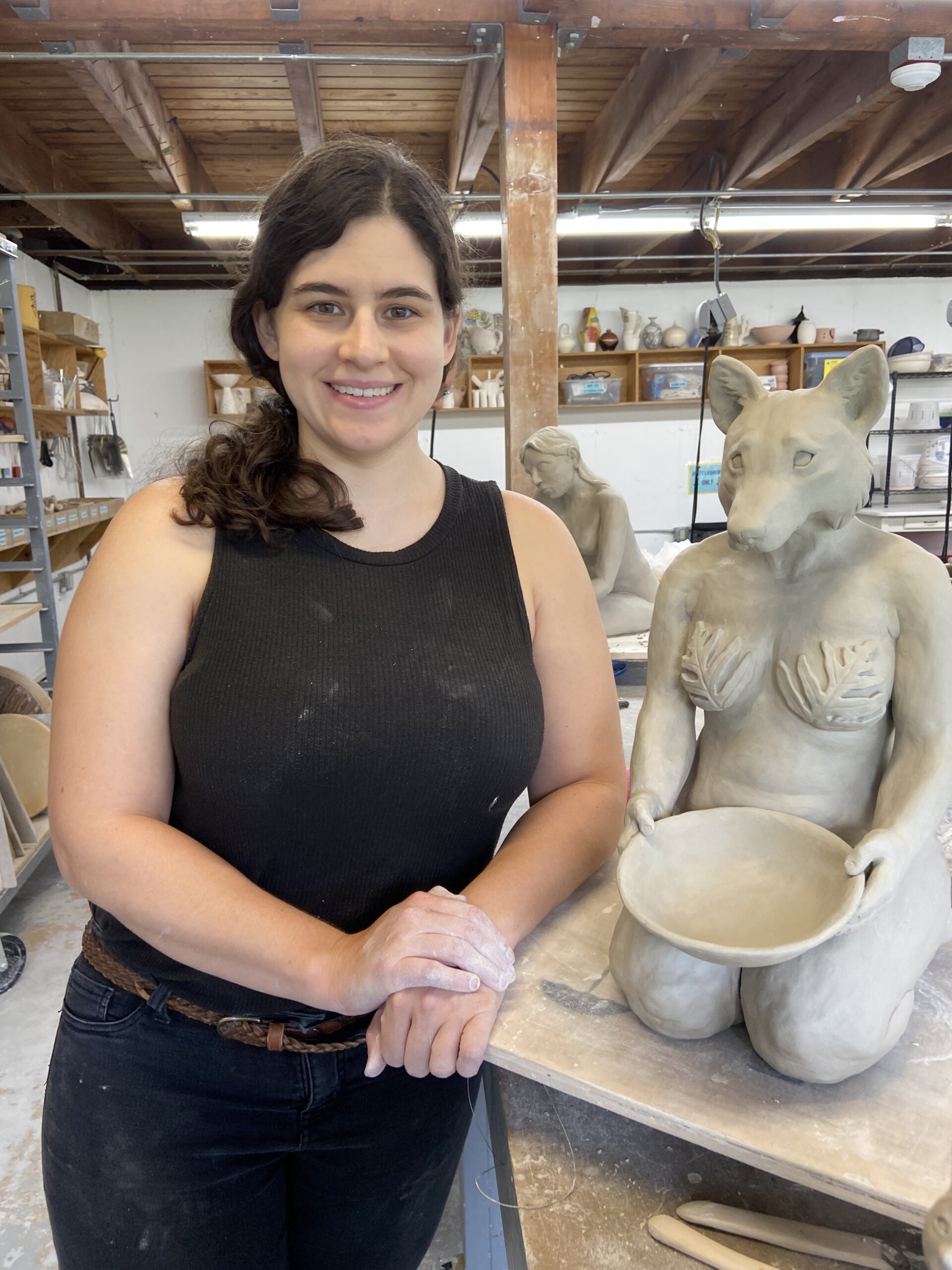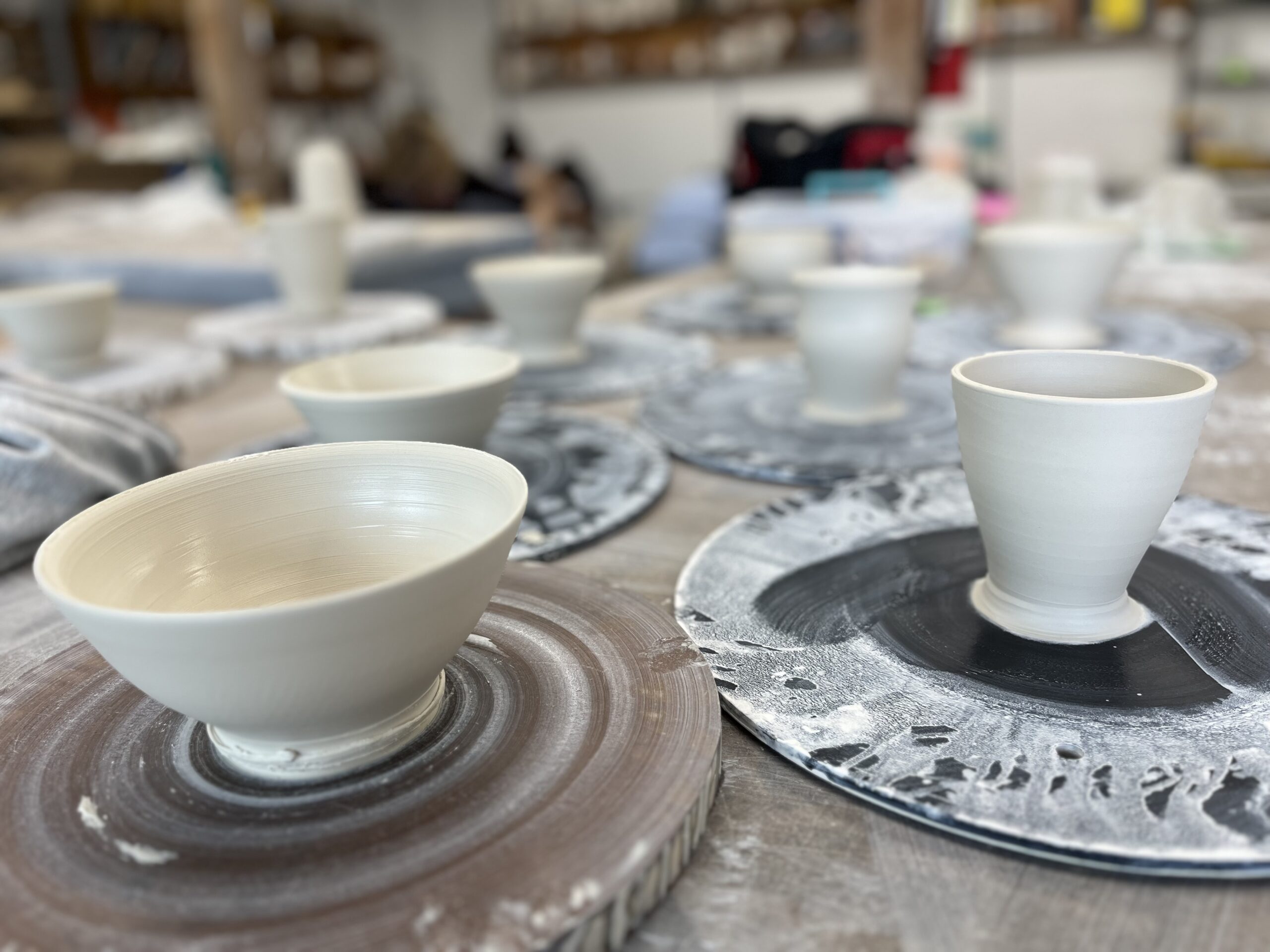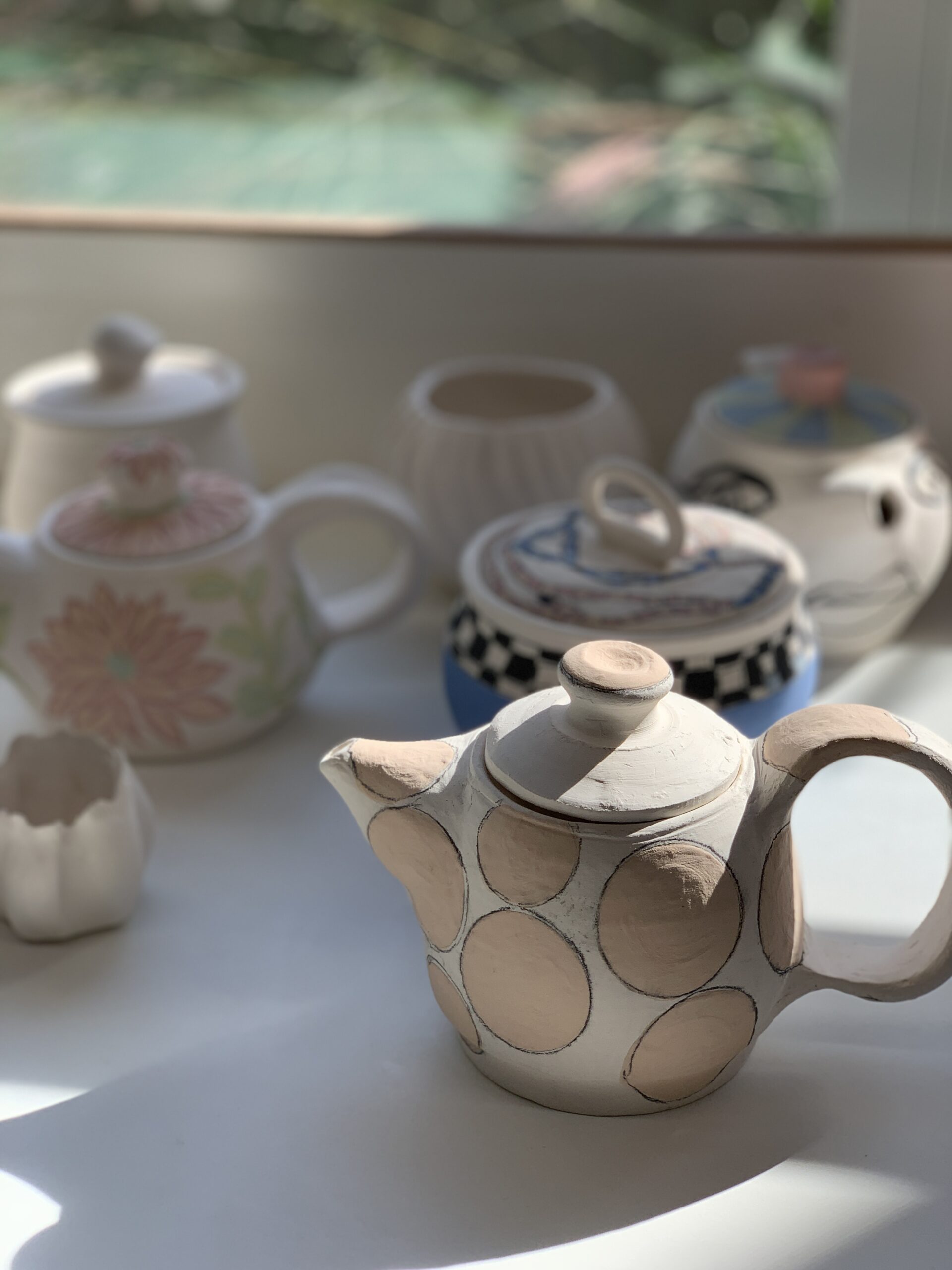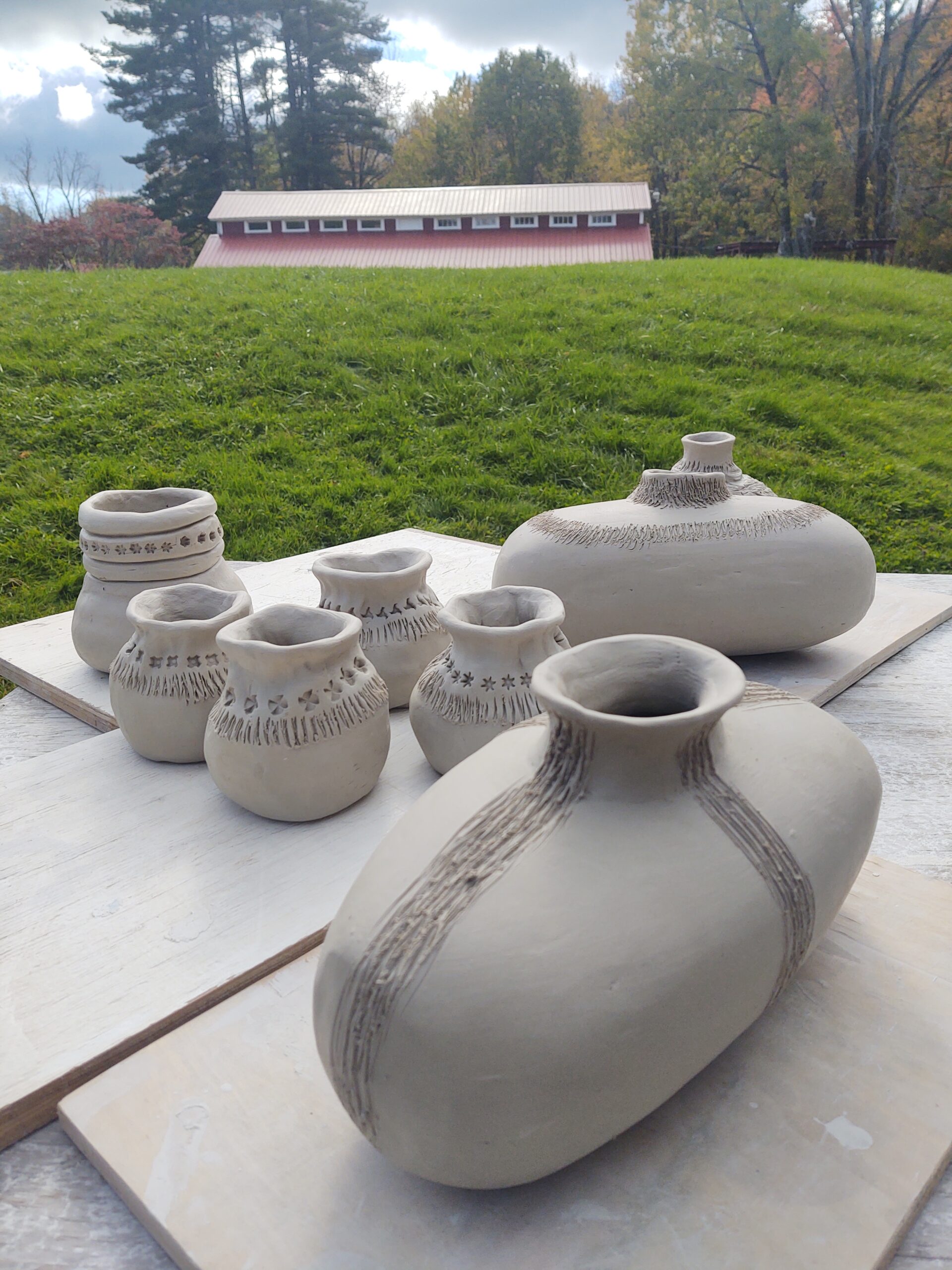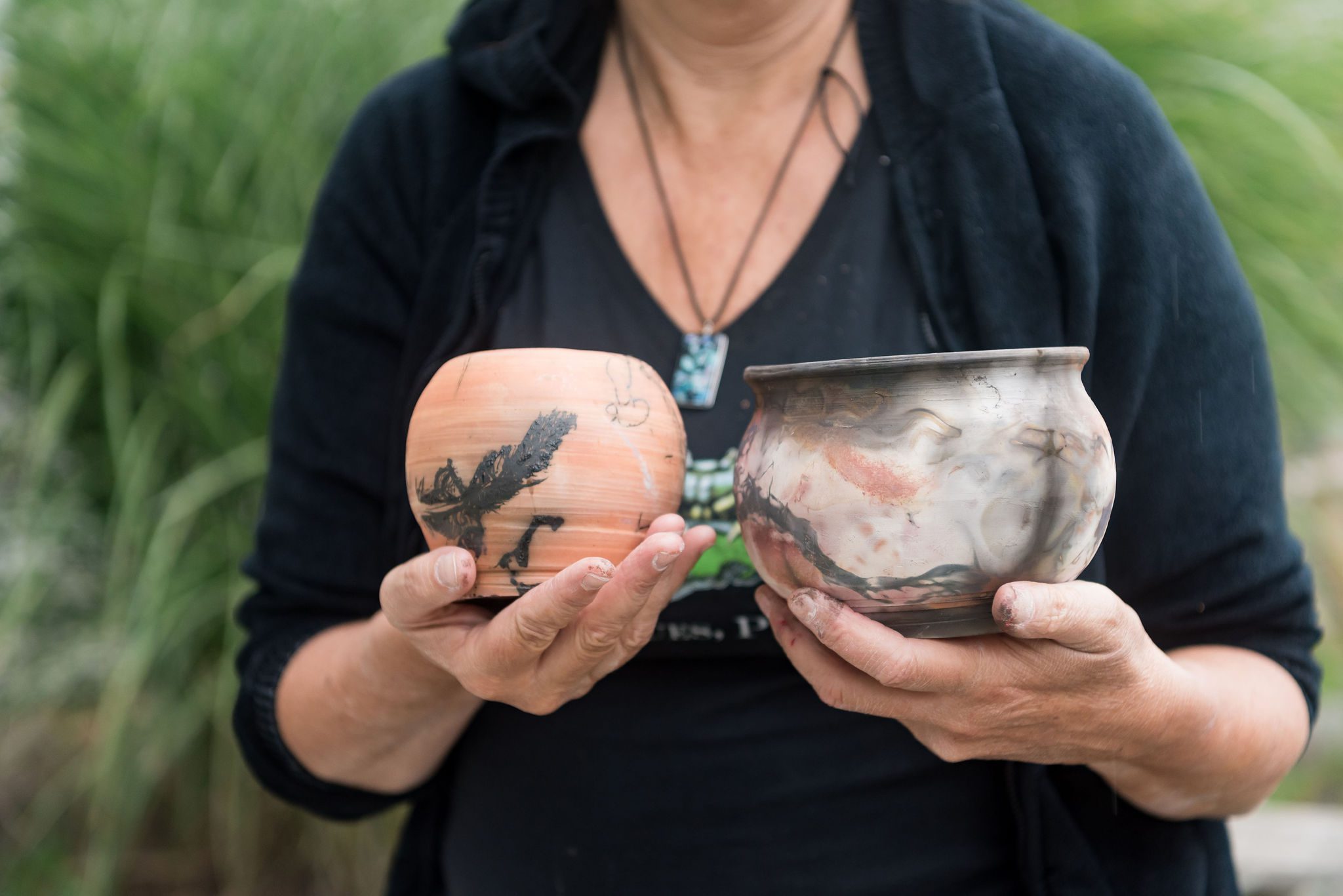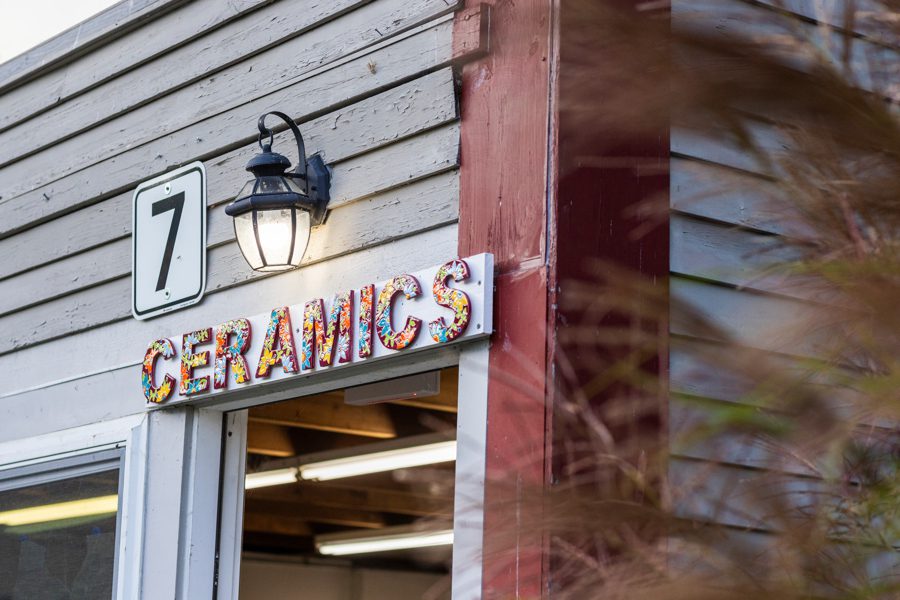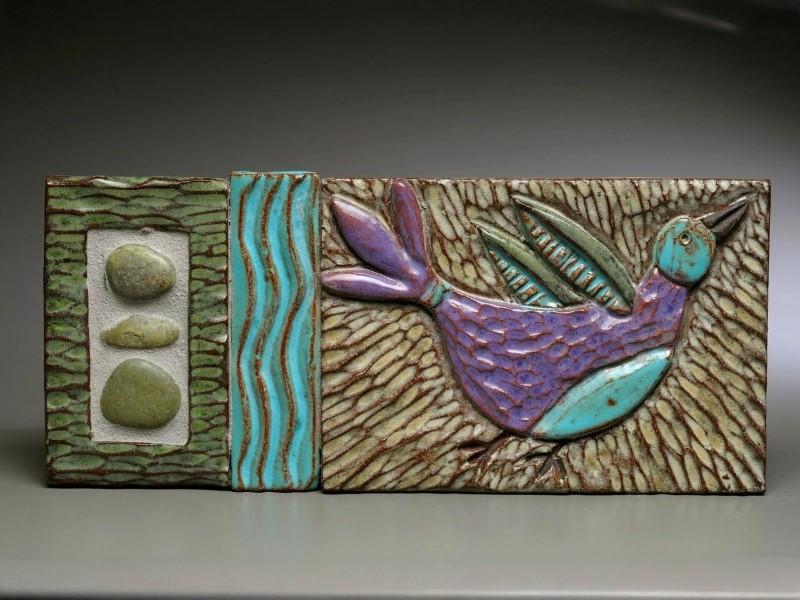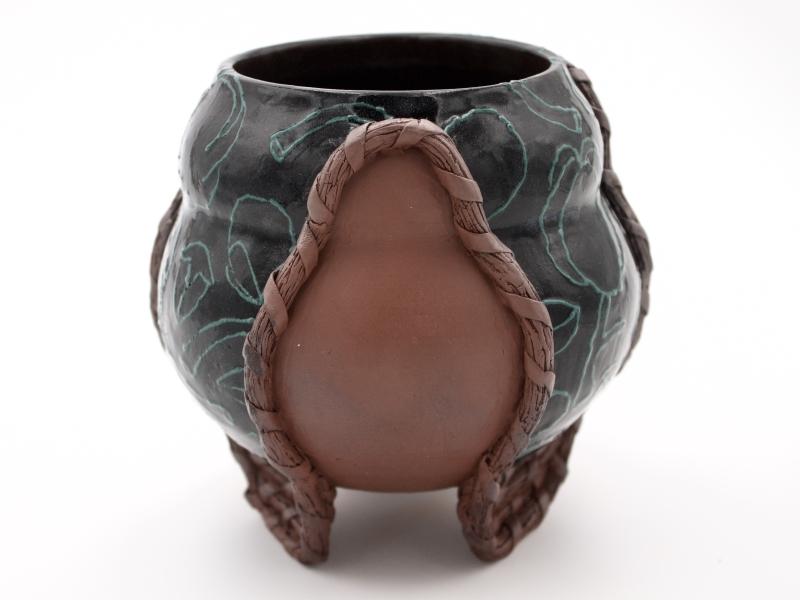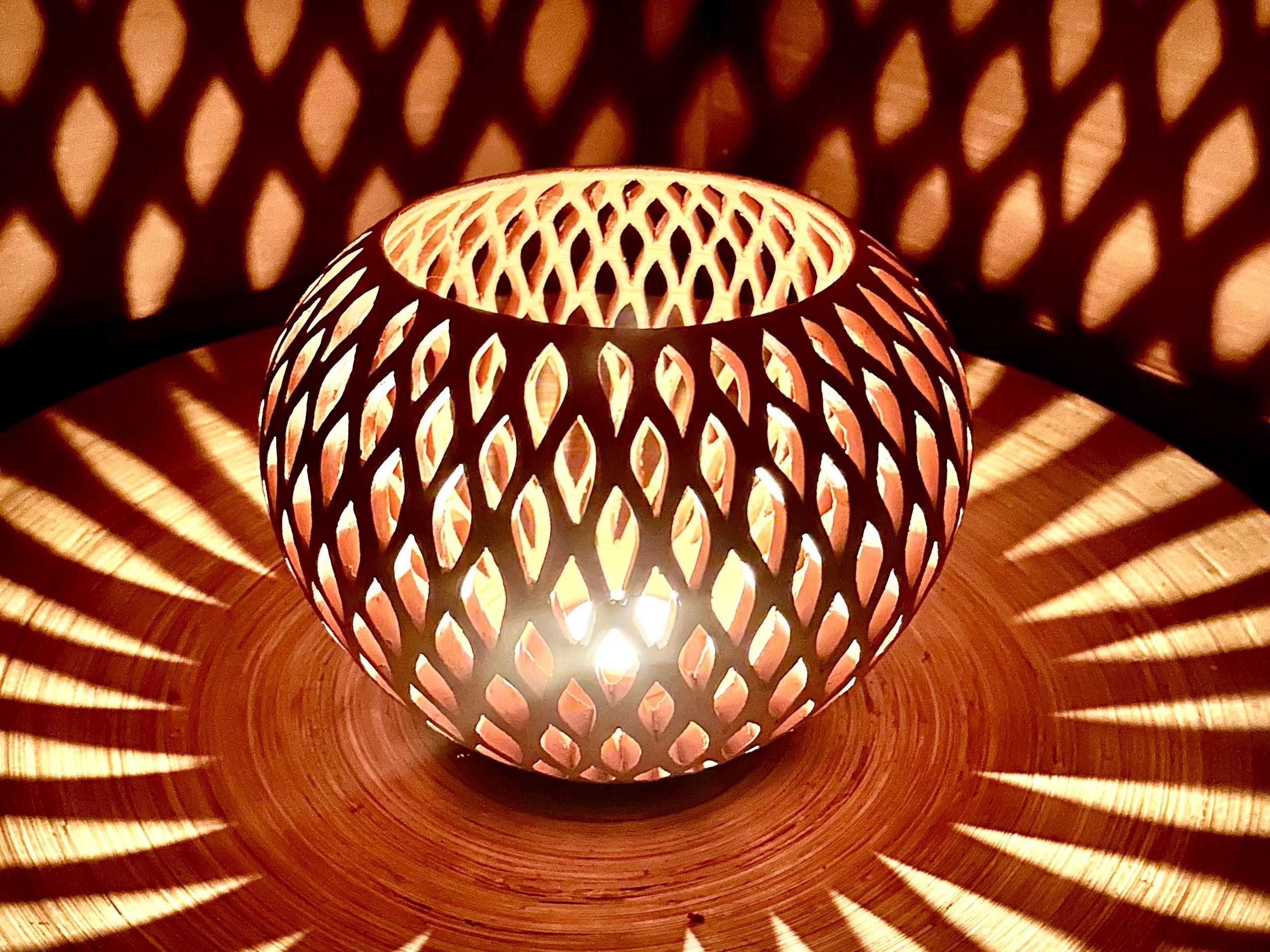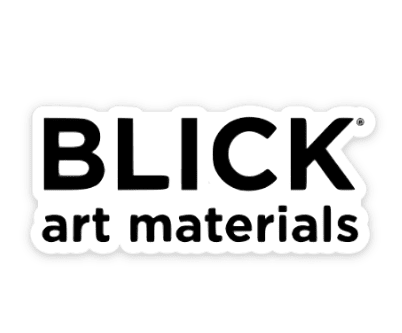This studio houses all ceramics workshops, including hand building, wheel throwing, alternative glazing and sculpture classes.
The ceramics studio was fully renovated in 2019. Located on the lower level of the main building, the bright space with large windows now has custom-made tables with locking caster wheels and new adjustable stools.
There are new glaze bins, shelving units, a sink area, and clay capture system. The electrical system in the studio has been upgraded with new pull-down outlets for the pottery wheels, plus additional lighting throughout the studio. In 2025, the floor got a new coat of epoxy with an anti-slip texture for easy cleanup. There is also better lighting and upgraded electricity for the outdoor kiln deck which includes a raku kiln, Bailey gas kiln, and pit firing area. Between the studio and the kilns is a patio with tables for staging work when loading/unloading. Workshops in the ceramics studio have a maximum of 8 students.
Browse the gallery below to explore the Ceramics studio and view a floor plan.
Equipment & Supplies
The ceramics studio is equipped with 8 Brent Potter’s Wheels and 8 Shimpo Banding Wheels, a Bailey Slab Roller, an extruder, and 2 Skutt 1227-3 Kilns (with Kilnmaster controllers). We have a stock of tools for wheel throwing, sculpting, and handbuilding, including ribs, sponges, needle tools, wires, buckets, fettling knives, bats and bat pins, trimming tools, calipers and more. This studio has heating and a window air conditioning unit. All studios are supplied with hand sanitizer, KN95 masks, nitrile gloves and anti-bacterial wipes.
Physical Demands
Working in the clay studio can involve extended periods of standing, stooping, and some lifting. In wheel throwing classes, expect long sessions of sitting on a low stool. Bricks are available to lift wheels if needed. Depending on the workshop, some processes might take place outside, regardless of weather. Raku firing classes require flexibility and fast movement. There can be significant variation in the physical demands of different ceramics classes; students who are concerned about their ability to participate safely and comfortably in a ceramics class should let us know before registering.
Open Studio Guidelines
The ceramics studio is available 24 hours per day throughout the workshop period. Instructors will outline safety guidelines for students who are staying to work, including any tools that should not be used without the instructor present. We suggest carrying a cell phone in the studio in case an emergency arises and you need to contact the on-site coordinator. The following guidelines apply to all studios at Snow Farm: There is to be no consumption of drugs or alcohol in the studios, nor shall students work with studio equipment when under the influence of drugs or alcohol. The last person in any studio is responsible for turning off indoor lights and closing the doors.
